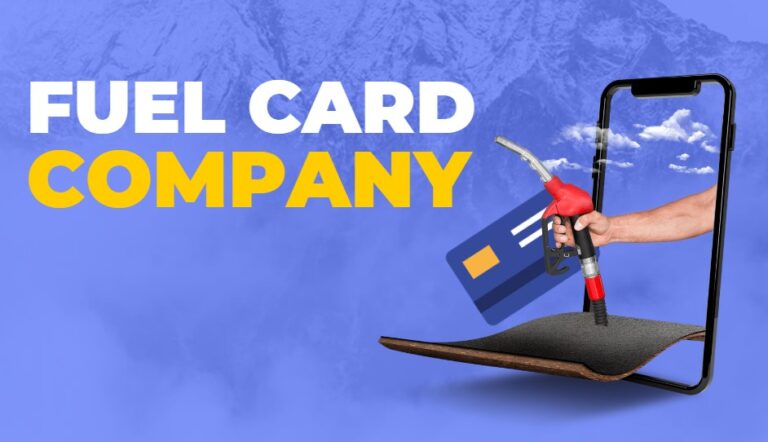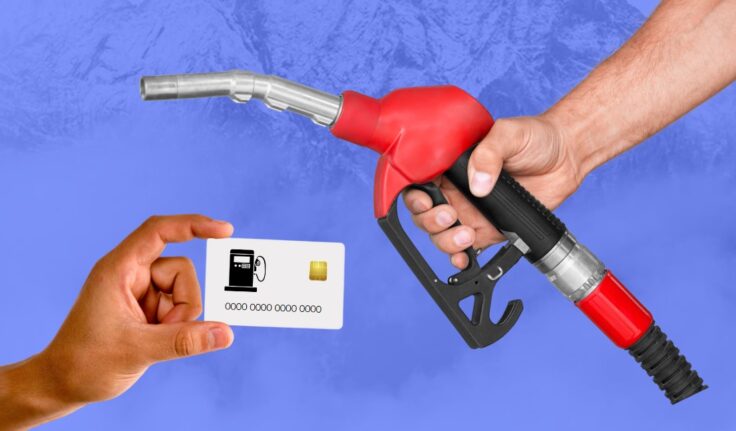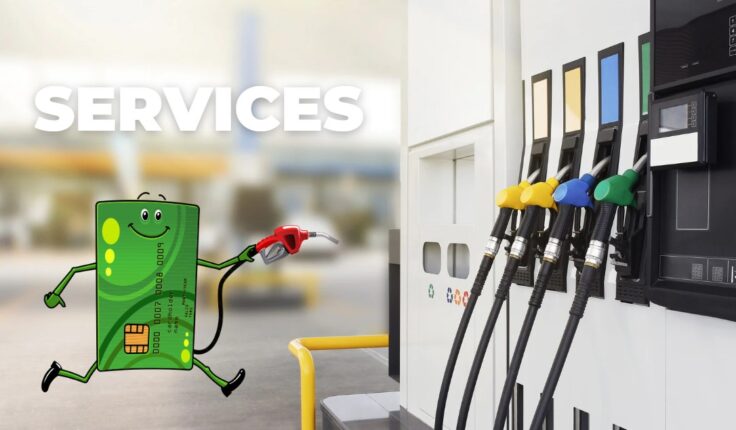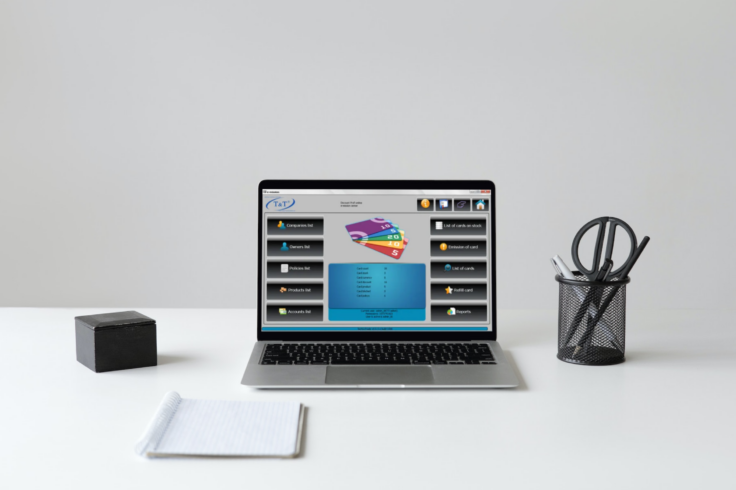The best fuel card company will depend on the individual’s needs. Popular fuel card companies include Shell, BP, and ExxonMobil, all of which have excellent customer service and competitive options.
Cash vs. card when it comes to fueling up your vehicle. If you’re like many of us, you’ve been stuck in the middle of this debate, flipping back and forth between the two, unsure of which will serve you better.
In an effort to bring clarity to this decision, today we are exploring the benefits of fuel card services and why a fuel card company may be your best bet when it comes to keeping your tank full and your wallet smiling. So put aside your cash or card worries, and let’s break down the ways a fuel card company could work for you.
But before we dive in, keep in mind that while fuel cards can be highly beneficial for managing vehicle expenses, it’s equally important to be mindful of other areas where costs can sneak up on you, such as when transporting vehicles, and you can learn more about this in our guide on avoiding common car transport cost traps.
What is a Fuel Card Company
A fuel card company wexcard is a business that provides customers with access to a fueling service. The fuel card company allows customers to purchase fuel at participating retailers and fuel stations using their own designated cards. These cards act as an alternative form of payment which makes the fuelling process convenient and efficient.
Fuel card companies are a beneficial tool for both businesses and individuals seeking to ensure the ongoing supply of fuel for their vehicles: businesses are able to maintain accurate records of when and where employees have purchased fuel, whilst individuals can benefit from discounts or rewards that some fuel card companies may offer.
Additionally, they’re easier to use than cash – particularly in remote locations – as they can be used at most service stations and retailers without having to come up with the correct change.
On the other hand, there can be drawbacks associated with using a fuel card company. Some users may find them more restrictive than other forms of payment due to the limits set on how and when they can be used. Additionally, there may be additional costs associated with using certain fuel cards such as fees for ordering, monthly fees or withdrawal fees that can all add up.
Overall, fuel card services offer a convenient method for both businesses and individuals to manage their vehicular fuelling needs. In the next section, we’ll discuss the different services that a fuel card company might provide customers with.
- According to a 2019 study, there are approximately 384 million fuel cards currently in use by businesses throughout the world.
- The global fuel card market is estimated to reach $100 billion in value by 2025.
- The top 5 fuel card providers worldwide (FleetCor, WEX Inc., Fleetmatics Group PLC, Oil Card Services and Voyager Fleet Systems) hold over 45% of the total market share.
Universal 2¢ rebate on gas (regardless of gas station brand) and 1% cash back on non-fuel purchases.
Services Provided
Fuel Card Companies provide a range of services to business owners. They offer fuel cards that allow business owners to easily track and manage their fuel purchases, while also providing discounts on fuel purchases at participating locations.
Businesses can choose between fleets cards, which give fleet managers control over vehicles and driver spending, or cashback cards, which offer cashback rewards on fuel purchases.
Fuel card companies also provide an online platform for monitoring and managing the business’s fuel expenses. Owners can use the online service to keep track of fuel usage, monitor spending limits, manage multiple cards, make payments via online banking, receive invoices electronically, issue tax exemptions for certain types of vehicles, provide detailed cost reports and much more.
Another useful service provided by fuel card companies is vehicle maintenance management. This service allows businesses to monitor their vehicles’ maintenance history and track Service Intervals (SI). It also helps businesses ensure they meet compliance requirements regarding vehicle servicing.
By utilizing this service, businesses can ensure their vehicles are running safely and efficiently while at the same time avoiding unnecessary expense due to costly breakdowns or repair bills.
Lastly, fuel card companies often provide customer support services such as 24/7 access to an experienced customer service representative who can answer questions related to fuel usage or purchases. They may also provide advice on what type of fuel is best suited for specific vehicles or circumstances.
Ultimately, when evaluating a potential fuel card company business for cars or heavy-duty trucks, owners should focus on what services the company offers that would be beneficial to their particular needs. The services provided by different fuel card companies can vary significantly so it is important for businesses to research the options carefully before making a decision about which one to go with.
Now that we have discussed the various services provided by fuel card companies let’s move onto our next topic: the benefits of using these services for business owners.
Crucial Highlights
Fuel card companies provide businesses with a variety of services such as fuel cards, an online platform for monitoring and managing expenses, vehicle maintenance management, and customer support.
Businesses should evaluate the services offered to decide which one best meets their needs. Benefits of using these services include allowing owners to easily track and manage fuel purchases while gaining access to discounts, monitoring vehicles’ maintenance history, and having access to customer service.
Here are some of the average prices of all fuel types you can find in USA:
| Fuel Type | Average Price per Gallon (USD) |
|---|---|
| Regular | $3.50 |
| Midgrade | $3.70 |
| Premium | $3.90 |
| Diesel | $3.75 |
| E85 | $2.75 |
| Electricity (eGallon) | $1.50 |
* Average prices for the first quarter of 2024
Here is a table of price comparisons for the last 10 years:
| Year | Jan | Feb | Mar | Apr | May | Jun | Jul | Aug | Sep | Oct | Nov | Dec |
|---|---|---|---|---|---|---|---|---|---|---|---|---|
| 2013 | 3.391 | 3.736 | 3.779 | 3.638 | 3.675 | 3.689 | 3.661 | 3.645 | 3.604 | 3.420 | 3.322 | 3.357 |
| 2014 | 3.392 | 3.434 | 3.606 | 3.735 | 3.750 | 3.766 | 3.688 | 3.565 | 3.484 | 3.255 | 2.997 | 2.632 |
| 2015 | 2.208 | 2.301 | 2.546 | 2.555 | 2.802 | 2.885 | 2.880 | 2.726 | 2.462 | 2.387 | 2.260 | 2.144 |
| 2016 | 2.057 | 1.872 | 2.071 | 2.216 | 2.371 | 2.467 | 2.345 | 2.284 | 2.327 | 2.359 | 2.295 | 2.366 |
| 2017 | 2.458 | 2.416 | 2.437 | 2.528 | 2.503 | 2.460 | 2.414 | 2.494 | 2.761 | 2.621 | 2.678 | 2.594 |
| 2018 | 2.671 | 2.705 | 2.709 | 2.873 | 2.987 | 2.970 | 2.928 | 2.914 | 2.915 | 2.943 | 2.736 | 2.457 |
| 2019 | 2.338 | 2.393 | 2.594 | 2.881 | 2.946 | 2.804 | 2.823 | 2.707 | 2.681 | 2.724 | 2.693 | 2.645 |
| 2020 | 2.636 | 2.533 | 2.329 | 1.938 | 1.961 | 2.170 | 2.272 | 2.272 | 2.274 | 2.248 | 2.200 | 2.284 |
| 2021 | 2.420 | 2.587 | 2.898 | 2.948 | 3.076 | 3.157 | 3.231 | 3.255 | 3.272 | 3.384 | 3.491 | 3.406 |
| 2022 | 3.413 | 3.611 | 4.322 | 4.213 | 4.545 | 5.032 | 4.668 | 4.087 | 3.817 | 3.935 | 3.799 | 3.324 |
| 2023 | 3.445 | 3.501 | 3.535 | 3.711 | – | – | – | – | – | – | – |
Benefits of Fuel Card Companies to Business Owners
Business owners are increasingly taking advantage of fuel card services to improve their bottom lines. The primary benefit of fuel cards has been the convenience they offer to business owners who need to purchase gasoline and diesel for their vehicles. Fuel card companies provide an efficient way to manage fleet expenditures, making it easy to control fuel costs and monitor vehicle expenses.
Fuel cards can be used to purchase fuel without having to worry about carrying large amounts of cash or running personal credit cards for each purchase. Furthermore, in addition to the convenience benefits, fuel card companies offer businesses the ability to save money by eliminating paper transactions, streamlining payment methods, and providing cost savings from discounts, such as discounted rates on in-network fuel purchasing and no fees for transactions.
Additionally, some fuel card companies offer additional services that enable businesses to better keep track of their gas purchases, including consolidated receipts and comprehensive reports.
On the flip side, however, some business owners may find that fuel cards come with certain drawbacks: fuel cards can be more expensive than standard credit cards due to associated transaction and setup fees; they can limit purchasing power if there are limits on how much fuel can be purchased at one time; and finally, some higher-end fuel card products may require substantial set-up costs.
Overall though, most business owners stand to benefit greatly from using a fuel card service—from greater convenience and cost savings on fuel purchases to increased accountability provided by detailed reports.
For these reasons, many businesses are now turning toward utilizing a fuel card company for all their fueling needs—which leads us into our next discussion about cost savings.
Cost Savings
Many people using fuel card services find cost savings to be a deciding factor when selecting their service provider. Fuel cards allow businesses to save money by providing access to discounts and management features that assist in controlling expenses. These benefits vary by provider, but commonly include:
- Discounts: Most fuel card providers offer discounted pump prices, helping drivers save money on every fill-up. Also, many fuel cards will pass on the discounts they receive from their merchant network partners directly to cardholders, reducing gasoline and diesel costs further.
- Management Features: Fuel cards track and record each purchase, making it easier for businesses to compare costs and identify excessive fueling expenses. This helps them optimize their vehicle fleet, cutting down on unnecessary trips and reducing overall fuel consumption.
- Integrated Services: Additional services such as GPS tracking and driver ID authentication may be integrated into some fuel card services, allowing managers to keep tabs on where their vehicles go. This can help reduce fuel waste caused by employees taking unauthorized trips or making unnecessary stops for non-business related errands.
Although paying for fuel cards does involve a certain expense up front, the potential cost savings make this service worthwhile for most businesses. That being said, there could be downsides to the cost savings offered by fuel cards.
For instance, depending on how the cards are used, companies may not always get the most competitive prices due to having limited negotiation power with merchants. In addition, many of the associated management features and integrated services come with additional fees that must be taken into account when assessing the affordability of a particular fuel card program.
Ultimately, there is potential for significant cost savings through efficient use of fuel cards – as long as businesses take the time to understand all the associated terms and fees involved in using these services. With that in mind, improved efficiency is another common benefit of using a fuel card service. The following section will explore this topic in greater detail.
Increased Efficiency
Efficiency is one of the primary benefits of using fuel card services for many businesses, especially within the transportation industry. Optimizing efficiency yields a direct and immediate cost benefit by reducing fuel costs, thereby strengthening a company’s bottom line.
Furthermore, expanding efficiency can lead to more opportunities for growth, investment in new technologies and increased customer satisfaction.
Fuel cards provide a convenient streamlining of the refueling process with secure access to network fueling stations enabling rapid monitoring of business expenses and secure payments through the latest point-of-sale technology.
Fuel cards can track transactions based on vehicle, driver and time of purchase allowing for greater flexibility when assessing data, allowing businesses to gain insight into operational efficiency and better analyze their transportation spend. This increased efficiency reduces costs associated with paperwork processing, tracking fuel fraud and managing back-office accounting as there is no need to manually update information, thus lowering administrative costs.
Not everyone is convinced that fuel card services offer a cost-efficient solution for all companies, however. There are drawbacks such as having to pay any associated fees connected to usage and maintenance which should be largely taken into consideration, as well as any facility or network restrictions that could limit freedom of choice when it comes to refueling options.
Despite these possible limitations, businesses who properly leverage additional features offered by fuel card programs (e.g. real-time data utilization) in order to maximize their investments accurately reporting costs can potentially reduce expenses while simultaneously improving internal operations.
Now that we have discussed the advantages of improved efficiency offered by fuel card services, let us turn to the topic at hand: The advantages of fuel card services for transportation companies in the next section.
Advantages of Fuel Card Services for Transportation Companies
Fuel card services offer many advantages to transportation companies. These include a single convenient billing method, reduced prices of fuel and streamlined administrative management processes.
One of the biggest advantages of having a fuel card is that it simplifies the process of billing for fuel purchases. Instead of invoicing multiple sources, one consolidated statement summarizes all fuel purchases on a monthly basis. This helps reduce the complexity and paperwork involved in tracking numerous receipts and invoices.
The cost savings related to fuel card services also can be considerable for transportation companies. Fuel cards are typically associated with discounted prices for fuel purchases, as vendors are more likely to offer favorable rates when payments are made with a card rather than with cash or cheque. Finding consistent ways to reduce expenses is crucial for businesses that rely heavily on vehicles for transportation purposes.
Fuel card services also offer an efficient way for transportation companies to manage their fleet use. Administrative costs related to tracking mileage, outage times and staff performance can be reduced if logging can be done electronically with a fuel card system. By reducing redundancies and automating certain processes, time and labor costs associated with vehicle operations and maintenance can be significantly lowered.
To sum up, there are many advantages to using fuel card services for transportation companies– including convenience, lower costs and improved fleet management systems. Moreover, these benefits can help provide reliable solutions to optimize operational efficiency while ensuring secure transactions and compliance with regulatory standards.
Next, we’ll discuss the convenience and security provided by fuel cards and the various measures taken by financial institutions to guarantee secure transactions.
Convenience and Security
The convenience and security of fuel card services cannot be understated. With fuel cards, companies have the ability to control their spending with limits, set up cards tailored to specific employees or vehicles, and use them to keep an accurate record of how and where company funds are being spent at all times.
For example, a business can set up custom cards for each individual driver that require the use of a unique PIN code. This allows them to limit spending on items and services above those which are permitted by the company – such as snacks and car washes – in addition to tracking the items purchased. Likewise, if suspicious activities are detected, businesses can quickly disable cards to prevent fraud from occurring.
From another angle, fuel card services eliminate the need for workers or business owners to carry excess cash for purchasing fuel for vehicles or other large expenditures, making it far more secure than having cash readily available in an employee’s wallet.
Moreover, crucial time can be saved due to keying in all the necessary details via secured online portals which can only be accessed by those who have been given permission. Businesses also have easier access to reliable data and more efficient historical records provided by these platforms, allowing them to actively monitor their fleet’s fueling activities while reducing risks associated with managing numerous individual credit/debit accounts.
In conclusion, fuel card services provide both convenience and security to organizations; however, it is important for businesses to be certain they are monitoring their usage correctly as well as selecting a reputable provider which can offer continuous insight into their company expenses. The next section will discuss how fuel card companies monitor and track purchases in order to help businesses achieve long-term savings and better manage their fleets.
How Fuel Card Companies Monitor and Track Purchases
The use of a fuel card is becoming increasingly popular due to the convenience, security, and monitoring features it provides. One of the benefits of having an in-depth understanding of how a fuel card company monitors and tracks purchases is that it allows businesses to save money by eliminating waste and fraud.
Fuel card companies provide detailed tracking reports that allow businesses to identify areas where they can reduce costs or improve efficiency. This can be done through monitoring and setting daily purchase limits, as well as tracking details such as the fuel type purchased, driver identification, vehicle registration numbers, odometer readings, and time of purchase.
Not only do fuel card companies monitor expenditure for businesses, but they also track usage information for individual drivers. Fuel cards are typically given to each driver connected with the business; this means that each driver’s usage can be tracked separately, ensuring proper accountability and keeping fraudulent activities (such as refueling other vehicles or personal vehicles) to a minimum. Some fuel cards also come with built-in GPS capabilities, allowing businesses to place geographical restrictions on purchases or receive notifications if a driver strays off course.
Fuel card companies have been criticized for their meticulous tracking of spending, with some arguing that such thorough surveillance violates privacy rights and infringes on personal freedom. Proponents of fuel card use to counter this argument by pointing out that this level of detail is essential for fraud prevention and cost management, both of which are key components of any successful business.
Overall, the ability to monitor and track purchases with a fuel card can have tremendous benefits for businesses in terms of saving money and preventing fraud. By taking advantage of the detailed reporting capabilities provided by fuel card companies, businesses can easily identify areas for cost reduction and opportunities to tighten their internal controls. The next section will discuss how reducing costs and better-managing money through a fuel card service can help businesses succeed.
Reducing Costs and Managing Money
Fuel card services are an economical way of cutting costs and managing money for businesses that rely on fuel to operate. Companies using them can take advantage of intelligent data mining technologies and analytics to gain insight their fuel usage and save money.
Fuel cards provide more visibility into how, where and when fuel is used, so companies can track the spending habits of their employees. Moreover, some cards allow for restrictions to be set in terms of accepted merchants or categories of expenses, which helps to prevent fraud and misuse of company funds.
Of course, implementing a fuel card system also has its drawbacks. Some providers charge a relatively high merchant fee to accept the cards, which can lead to increased overhead costs in certain situations.
Additionally, not all fuel card providers will have service in every state or region; making sure they are accepted by local merchants should be taken into account. Furthermore, regulations concerning the use of payment cards can vary depending on the country or region; companies should research these before signing up for any type of card service.
In conclusion, incorporating a fuel card system into business operations can provide clear benefits when it comes to reducing costs and monitoring expenses. Implementing such a system requires careful planning and research though, as there may still be risks involved such as merchant fees or non-acceptance in certain regions. With that in mind, let’s move onto our next section – the conclusion.









